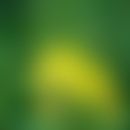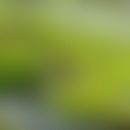Synonym(s)
DefinitionThis section has been translated automatically.
The clove tree originates from New Guinea, is native to the Philippines and the Moluccas, is also found in Madagascar, grows up to 20 m high and belongs to the myrtle family (Myrtaceae). The leaves are leathery and glossy, the flowers whitish-pink. The square flower buds are 18 mm long and have a 3-4 mm thick,
stalk-like ovary with a 5 mm spherical head, the actual cloves. The ovary with the numerous ovules is located in the square shaft. Flowering time: July to August, fruit ripening: September to October
Caryophilli flos, the officinal cloves from dried flower buds, are used phytotherapeutically. The flower buds contain an essential oil, eugenol. The oil(clove oil) also contains small amounts of the substances acetyleugenol and ß-caryophyllene.
According to Ph.Eur.8,Caryophylli flores aetheroleum, the officinal clove oil, is the essential oil of the flower buds, flower stems and leaves. According to ÖAB the essential oil of the flower buds.
General informationThis section has been translated automatically.
Clove trees are cultivated in the Philippines, Indonesia, Malaysia, Madagascar, Zanzibar, Seychelles, various countries of the world. Seychelles, various areas on the East African coast.
The clove oil and the clove itself are used. In the case of clove oil, a distinction is made between the oils of the various parts of the plant.
The clove is used for cooking and baking and in the food industry as a flavouring and aromatic substance. Vanillin and isoeugenol and other eugenol derivatives are synthesized from eugenol .
Complication(s)This section has been translated automatically.
Eugenol and isoeugenol play a major role as allergens. Sensitizing potency: Medium. Frequency of sensitization: Occasional. Sensitizations ( contact allergy; urticaria) are mainly found on dental material in dental personnel. Cross-reactivity exists to Peru balsam. Clove oil apparently also has an antimycotic and antibacterial effect. It is still a standard agent for root fillings today.
The DKG has so far tested clove oil 2% in Vaseline. This form of application is no longer available as a test substance in Germany. In this respect, the test substance eugenol 1% in Vaseline is now recommended (as of 2016). Clove oil consists of 90% eugenol, which is also contained in the fragrance mix.
LiteratureThis section has been translated automatically.
- Adefegha SA et al. (2014) Antihyperglycemic, hypolipidemic, hepatoprotective and antioxidant effects of dietary clove (Szygium aromaticum) bud powder in a high-fat diet/streptozotocin-induced diabetes rat model. J Sci Food Agric 94: 2726-2737
- Dibazar SP et al. (2014) Immunomodulatory effects of clove (Syzygium aromaticum) constituents on macrophages: in vitro evaluations of aqueous and ethanolic components. J Immunotoxicol 12: 124-131
- Geier J et al. (2016) Update on the epicutaneous test series of the German Contact Allergy Group. Dermatology in occupation and environment 64: 70-75
- Hausen BM, Vieluf K (1997) Allergy plants, plant allergens. Ecomed Verlag Landsberg/Munich 224-226
- Lee JI et al. (2001) Purification and characterization of antithrombotics from Syzygium aromaticum (L.) Merr. & PERRY. Biol Pharm Bull 24: 181-187
- Mansourian A et al. (2014) The comparative study of antifungal activity of Syzygium aromaticum, Punica granatum and nystatin on Candida albicans; an in vitro study. J Mycol Med 24: e163-168
- Ranasinghe L (2002) Fungicidal activity of essential oils of Cinnamomum zeylanicum (L.) and Syzygium aromaticum (L.) Merr et L.M. Perry against crown rot and anthracnose pathogens isolated from banana. Lett Appl Microbiol 35: 208-211
- Sultana B et al. (2015) In vitro antimutagenic, antioxidant activities and total phenolics of clove (Syzygium aromaticum L. seed extracts. Pak J Pharm Sci 27:893-899
- Blaschek W (2015) Wichtl tea drugs and phytopharmaceuticals. A handbook for practice. Wissenschaftliche Verlagsgesellschaft Munich. S 156-158
- https://arzneipflanzenlexikon.info/gewuerznelken.php
- Montag A (2023) Plants and skin. Springer-Verlag GmbH. S. 533-536



